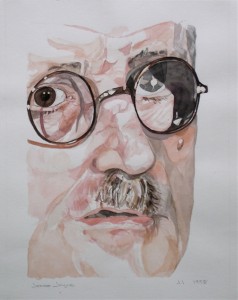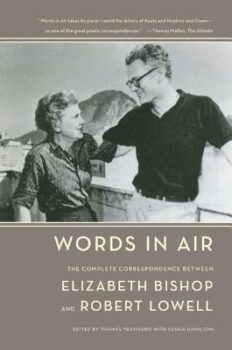In a single day — June 16, 1904 — Leopold Bloom and Stephen Dedalus walked the streets of Dublin and the pages of James Joyce’s Ulysses. Today in cities across the globe, fans of the novel are celebrating with races, walking tours, pub crawls, readings, and performances.
If you’re in Dublin itself, events began on June 13 and culminate today with a walking tour, Bloomsday breakfasts at the James Joyce Centre, readings and songs in Meetinghouse Square, and a screening of John Huston’s The Dead at the Irish Film Institute.
New Yorkers, if you haven’t experienced Bloomsday on Broadway (at Symphony Space each year on June 16), please cancel tonight’s plans and let James Joyce — via a host of writers and actors like Malachy McCourt, Marian Seldes, and Colum McCann — work his magic from 6 PM until Molly Bloom says “Yes.” Back when this program was a shared venture with NPR/WNYC (and featured a day-long reading/Joyce love-in), I attended several times, my favorite being Bloomsday 2005, when Stephen Colbert movingly portrayed the part of Bloom. This 28th Bloomsday on Broadway will focus in particular on the use of food in Ulysses. A taste:
“Mr. Leopold Bloom ate with relish the inner organs of beasts and fowls. He liked thick giblet soup, nutty gizzards, a stuffed roast heart, liver slices fried with crustcrumbs, fried hencods’ roes. Most of all he liked grilled mutton kidneys which gave to his palate a fine tang of faintly scented urine.”
One of tonight’s readers, Colum McGann, offers a personal response to the novel in today’s NY Times (thanks to Kathryn for the link):
Vladimir Nabokov once said that the purpose of storytelling is “to portray ordinary objects as they will be reflected in the kindly mirrors of future times; to find in the objects around us the fragrant tenderness that only posterity will discern and appreciate in far-off times when every trifle of our plain everyday life will become exquisite and festive in its own right: the times when a man who might put on the most ordinary jacket of today will be dressed up for an elegant masquerade.”
This is the function of books — we learn how to live even if we weren’t there. Fiction gives us access to a very real history. Stories are the best democracy we have. We are allowed to become the other we never dreamed we could be.






